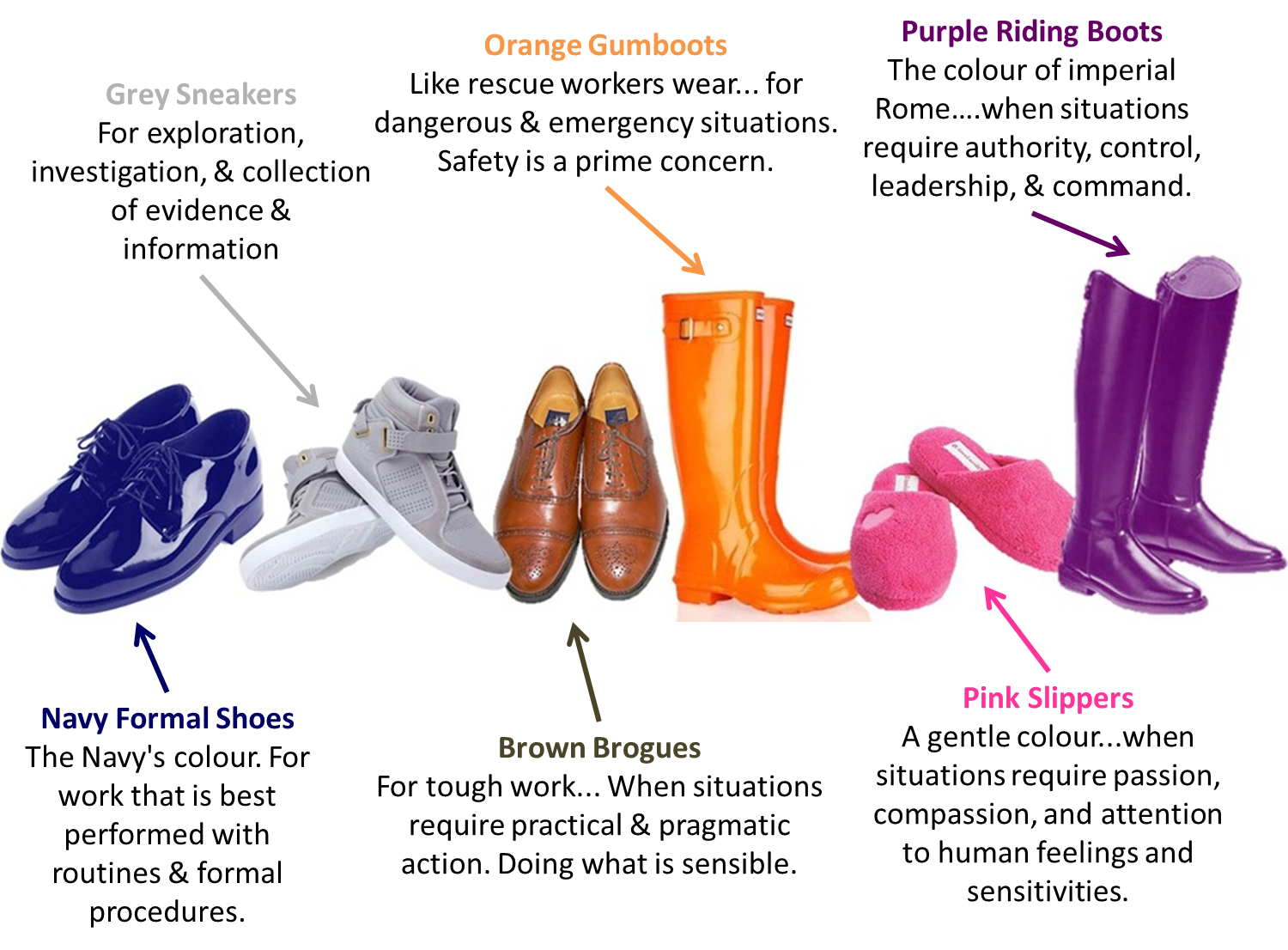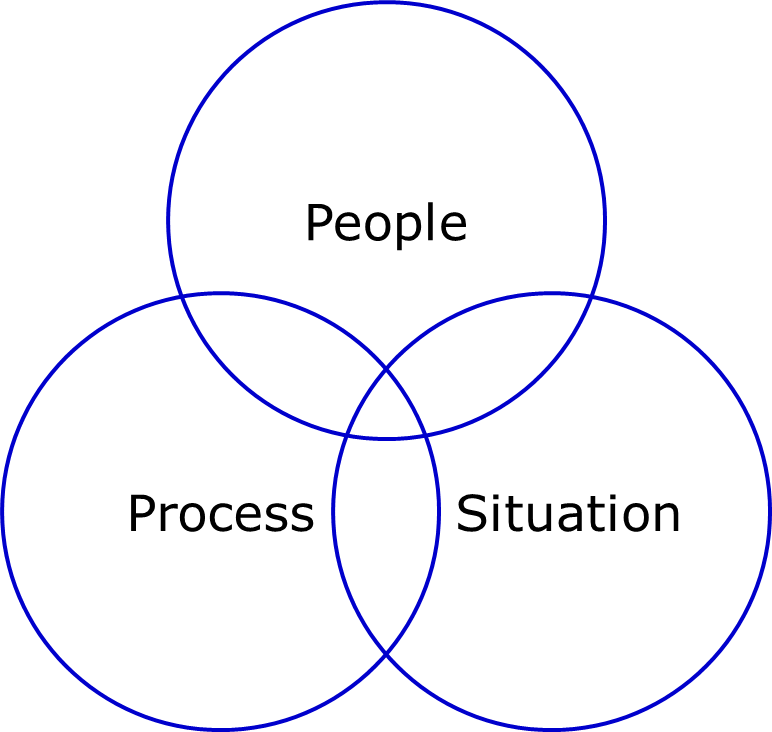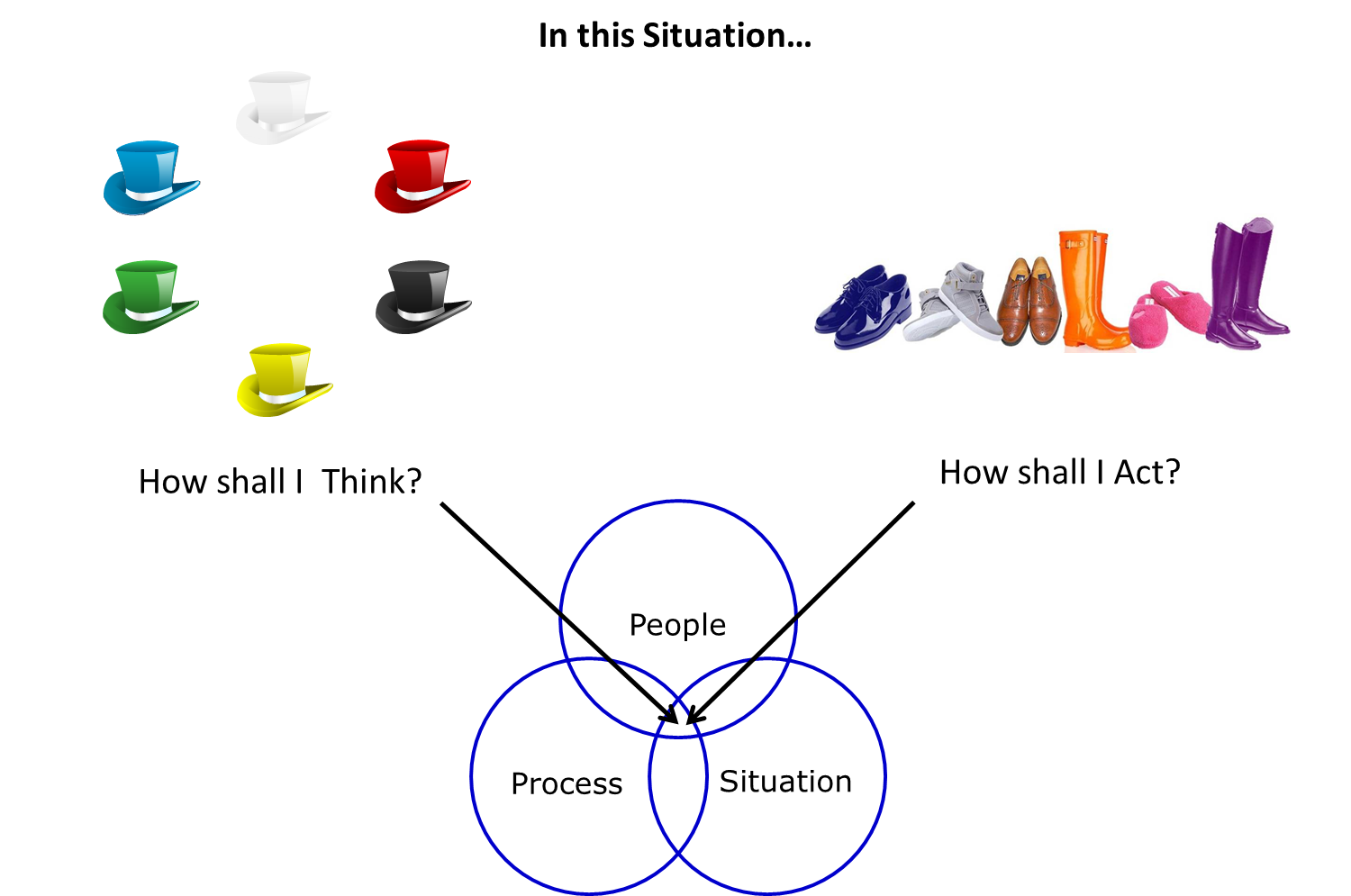Edward de Bono is one of my heroes. In my opinion, he is the world's greatest creative thinking educator.
I have written about Edward de Bono and his 'Six Thinking Hats'...'Six Thinking Hats' is an extremely helpful tool for sorting out your thinking and for communicating with others about thinking.
Here's a picture-summary:
Edward de Bono's 'Six Thinking Hats'

I have a de Bono section in my library. My goal is to collect and red all his books. That's a challenge because he has been prolific, writing well over 50 books. I have just completed reading de Bono's 'Six Action Shoes', (1991). 'Six Action Shoes' is an extremely helpful tool for sorting out your actions and for communicating with others about actions.
Here's a picture-summary:
Edward de Bono's 'Six Action Shoes'

These thinking and action tools provide excellent ways to Seek Simple....a Spirited Leaders' philosophy. When thinking can be summarized in 6 ways...that's seeking simple. When action can be summarized in 6 ways...that's seeking simple. And, that's why Edward de Bono is so amazing. He has been able to unleash his genius [and help others do the same] because he is the master in simplifying before choosing how to think, simplifying before choosing how to act, and knowing when and how to be creative. In other books, he illustrates exactly how to be creative. [Our recent thought post 'Taking Curiosity to Creativity' contains de Bono's signature contribution - lateral thinking.]
Now, Seek Simple is one of Spirited Leaders' core philosophies...another is:
Business Contains Only 3 Things: People, Process, & Situations
Much has been posted about People, Process, & Situations.
Now we will show how Edward de Bono's Six Thinking Hats and Six Action Shoes can be incorporated.
Business Contains Only 3 Things: People, Process, & Situations.
Here's the picture...

A snapshot in time during your business day - that's what we mean by Situations. That snapshot will contain people [at least 1, you] and it will contain process [at least 1, your thinking]. Process either involves People or machines/mechanisms/tools [designed by People]. For the time being, let's concentrate on the Processes performed by People. There are only 2 types of Processes performed by People: Thinking and Action. If we embrace de Bono's tools, the Processes performed by People have 12 components: 6 ways of thinking and 6 ways of taking action.
In any Situation, People can decide which of the 12 things they will perform.
Here's the picture...

Those are good questions to ask!
[That's Seeking Simple and finding it.]
[That makes for one very Good Habit.]